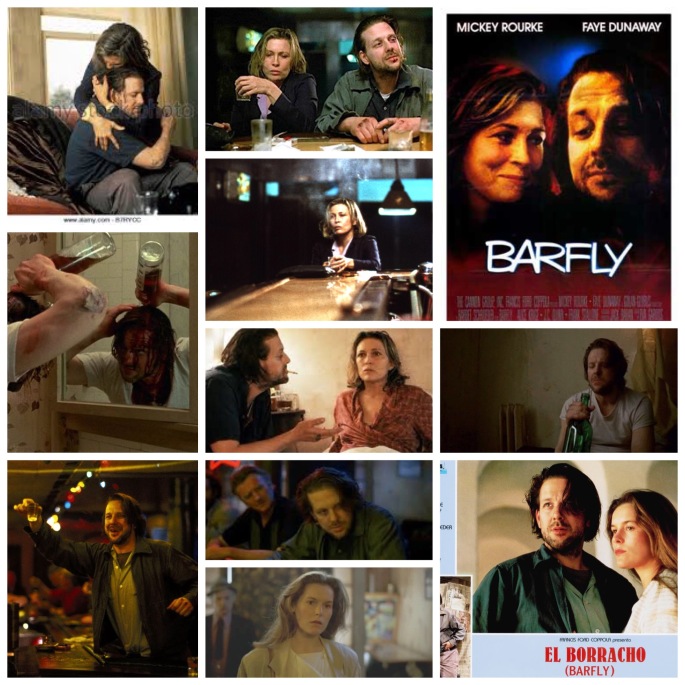
Charles Bukowski’s Barfly requires a specific thing of it’s audience: emphatically try to observe a very particular brand of life, that of the binge drinking drifter in 1970’s LA basin area. If you can do this, it’s a brilliant piece of work to enjoy, and if you can’t, it’ll be an abrasively off-putting slog to sit through. I fell smartly into the former category as the subject matter came.. vaguely close to hitting home, and because it’s just a fantastic movie in itself. Mickey Rourke was at the top of game during the 80’s, and this is one glowing gem of a role for him, one that shows a vulnerable, less macho dipped side of the man no less. Playing a restless, shambling gutter-snipe named Henry Chinaski, he careens through the film consuming any booze he can get his hands on, barely maintaining already dysfunctional relationships and haunting his derelict apartment, as well as that of a fellow rummy he meets in the form of excellent Faye Dunaway, looking equal parts haggard and angelic until we’re not sure what we’re looking at. Chinaski is of course supposed to be Bukowski himself, as the film and it’s fiery script are autobiographical in nature, based on the willfully misanthropic writer’s hazy adventures in backwoods Hollywood during that era. Approached by a publisher (beautiful, articulate Alice Krige, who replaced Helen Hunt) with stars in her eyes for the man and his work, Chinaski gets a taste of life on the other side of the tracks, albeit briefly, an interlude he describes as ‘a cage with golden bars.’ The dives along those strips are his home right to the core, and he’s proud of it. The film is episodic, elliptical and open ended, a glimpse through the window of what it must be like for these people for a time, as the camera lovingly follows them about their ways for a while like a fly on the wall, then loses interest, buzzes off and leaves them in peace without rhyme, reason or resolution, unless of course your sensibilities jive with the meandering, barely sculpted story structure, which I loved. The film has little interest in aesthetics or pleasantries either, showing ugly, mottled alcoholics and layabouts who fill the frames around Rourke and Dunaway like brittle garden gnomes adorning the bar, a far cry from the fresh, powdered faces we’re used to in Hollywood. “Don’t you hate people?” Dunaway laments to him in one scene. “No, but I seem to feel better when they’re not around..” he croons back. It’s that kind of stinging poetry that gives this film, and Bukowski’s career, such lasting weight. Not to be missed.
-Nate Hill
